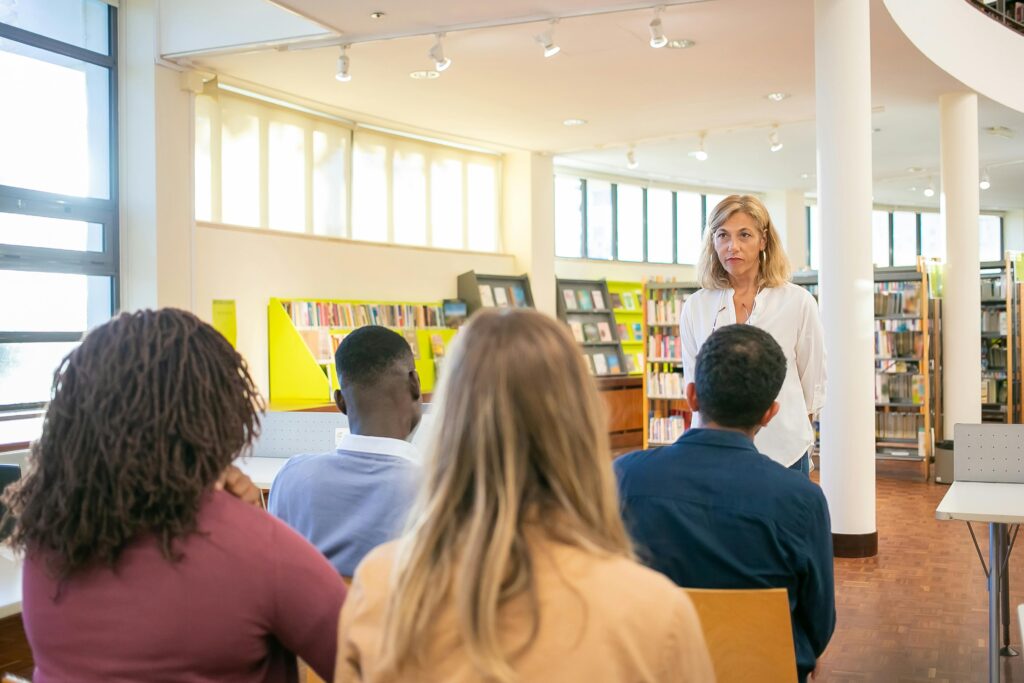
In an era marked by climate change, resource depletion, and environmental degradation, education stands as one of the most powerful tools for building a sustainable future. It not only spreads awareness about pressing global issues but also equips individuals with the knowledge, values, and skills needed to drive change. This blog examines the role of education in sustainability, the integration of environmental awareness into learning, and the importance of structured learning programs such as sustainability courses in preparing individuals and communities to meet the challenges of tomorrow.
Introduction: The Role of Sustainability Courses in Creating Change
The journey toward a sustainable future begins with informed minds. Education, whether through formal institutions, vocational training, or specialized programs, has the potential to shape attitudes, influence behaviors, and inspire action.
Enrolling in sustainability courses allows learners to gain a deeper understanding of environmental issues, sustainable practices, and the interconnectedness of ecological, economic, and social systems. These courses often blend theory with practical applications, ensuring that students can translate knowledge into measurable actions in their communities or workplaces. By embedding sustainability principles into educational frameworks, societies can cultivate a generation of environmentally responsible leaders who make decisions with long-term impacts in mind.
Why Education Is a Cornerstone of Sustainability
1. Raising Awareness of Environmental Issues
Education is the first step toward understanding the urgency of sustainability. By providing accurate information about issues such as climate change, deforestation, and biodiversity loss, it encourages individuals to adopt eco-conscious lifestyles.
2. Developing Critical Thinking and Problem-Solving Skills
A sustainable future depends on innovative solutions. Education fosters analytical thinking, enabling people to assess complex challenges and create actionable strategies that balance environmental, social, and economic needs.
3. Encouraging Sustainable Consumption and Lifestyles
Educational programs emphasize the importance of responsible consumption, waste reduction, and resource conservation, values that individuals carry into their personal and professional lives.
Integrating Sustainability into Education Systems
1. School Curricula
Embedding sustainability concepts into school subjects such as science, geography, and social studies ensures that children develop environmental literacy from an early age. Activities like nature projects, recycling drives, and community clean-ups provide practical exposure.
2. Higher Education Programs
Universities are increasingly offering sustainability-focused degrees and research opportunities. Students can specialize in renewable energy, environmental policy, or sustainable design, contributing directly to global sustainability goals.
3. Vocational and Professional Training
Beyond traditional academia, professional development programs in industries like agriculture, manufacturing, and construction teach sustainable practices tailored to specific sectors.
The Role of Teachers and Educators in Sustainability
Educators are pivotal in promoting a culture of sustainability. They not only share knowledge but also model sustainable practices, such as minimizing resource use, promoting digital learning over excessive paper consumption, and organizing environmental initiatives within schools or universities. Teachers who integrate real-world examples and community-based projects into lessons make sustainability more relatable and actionable.
Global Initiatives Linking Education and Sustainability
International organizations such as UNESCO and the United Nations have long emphasized Education for Sustainable Development (ESD) as a global priority. ESD programs encourage lifelong learning that equips individuals to address the environmental, social, and economic challenges of the 21st century. Global frameworks such as the UN Sustainable Development Goals (SDGs) also highlight the crucial role of education in achieving a sustainable planet.
Technology as a Driver for Sustainable Education
Advancements in technology have transformed how sustainability is taught and learned. Online learning platforms now offer interactive resources, virtual simulations, and case studies, enabling learners worldwide to access quality sustainability education. Digital platforms reduce the environmental footprint of traditional learning by minimizing travel, printed materials, and energy consumption associated with physical classrooms.
Practical Benefits of Sustainability Education
1. Empowering Communities
Educated individuals can initiate grassroots projects, from local clean-up drives to renewable energy installations, creating ripples of change within their communities.
2. Influencing Policy and Corporate Practices
Sustainability-educated professionals often take on roles in policymaking, corporate governance, and research, directly influencing decisions that impact environmental and social well-being.
3. Enhancing Employability
As more organizations adopt sustainability goals, they actively seek employees with expertise in eco-friendly practices, resource management, and ethical leadership. This trend has made sustainability education not just a social imperative but also a career advantage.
Challenges in Promoting Sustainability Through Education
Despite progress, integrating sustainability into education faces hurdles such as limited resources, lack of trained educators, and insufficient collaboration between institutions and policymakers. Overcoming these challenges requires strong partnerships, innovative funding models, and the continuous training of educators in sustainability concepts.
Steps to Strengthen the Role of Education in Sustainability
- Government Support – Implement policies mandating sustainability education across all levels.
- Teacher Training – Provide resources and workshops for educators to effectively teach sustainability.
- Public-Private Partnerships – Collaborate with businesses to fund programs and share expertise.
- Community Involvement – Engage local communities in educational sustainability projects to reinforce real-world learning.
Conclusion: The Lasting Impact of Sustainability Courses
The path to a sustainable future relies heavily on education’s ability to inspire change and empower individuals to take action. By instilling environmental awareness, critical thinking skills, and practical know-how, education equips people to address the challenges of climate change, resource scarcity, and social inequality.
Enrolling in sustainability courses offers a structured approach to learning, enabling individuals to understand global sustainability frameworks, implement eco-friendly solutions, and influence change at personal, professional, and policy levels. With education as the foundation, a greener, more equitable future is not only possible but well within reach.


Leave a Reply